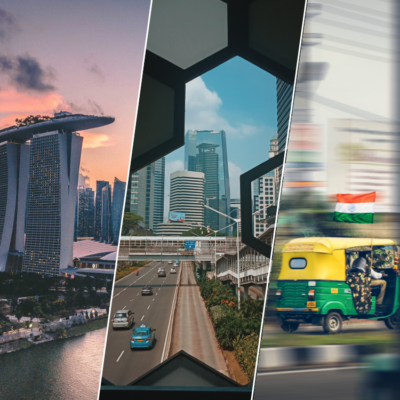
AI for Good: creating good for people and planet
Bengaluru, India
Is artificial intelligence (AI) finally ready for prime time? I don’t see a day go by where I don’t hear of AI and, its profound impact on humans. In this knowledge economy, growth is now dependent on the quantity, quality, and accessibility of available information. AI is no more a good technology to have; instead, it is a must-have!
The use and sophistication of AI gives an enterprise a distinct advantage to amplify their business services and products. AI will be ubiquitous in the near future – even if we are unaware of its existence while performing our day-to-day tasks. This has also paved the way for commentaries on this technology’s ethical aspects and the need to institute effective practices of building fairness, interpretability, data privacy, and security as the core of every AI offering.
While much has been spoken about the business imperative of AI, this technology has an equally attractive social impact potential. From predicting protein structure to accelerated drug discovery, AI has been at the forefront in the fight against COVID-19 and has reinstated its pole position as an ‘all-weather’ technology with both business and societal impacts.
In this regard, I would like to specifically cover two use cases to showcase how AI can help the world run better and improve people’s lives.
AI City Scale Simulator: A joint initiative by SAP, IISc and TIFR
SAP Labs India joined hands with Indian Institute of Science, Bengaluru (IISc) and TATA Institute of Fundamental Research, Mumbai (TIFR) to build an AI-based solution to perform city-data simulation, blend it with the COVID-19 cases data trend coming across from the world and gauge the real infection situation in the city.
The Epidemic City scale simulator is different from other forecasting mechanisms and similar Agent-Based Epidemic Models due to its unique features such as differentiating the spread on the basis of age, demographics, employment data, occupancy distribution, the mode of interaction in each ward/city, transmission rate/coefficients, spatial stratification, exposure in places of mass gathering, as well as the expectancy of spread due to commuting via different modes of public transport. Additionally, the simulator’s focus is to understand the specific intervention method like social distancing, self-quarantining and lock-down and show disease progression results due to different interventions chosen.

AI-driven anti-counterfeiting solution: Safer products for consumers
Counterfeiting is rising at an alarming rate. As per the latest Global Brand Counterfeiting Report, the amount of total counterfeiting globally has reached 1.82 Trillion USD in 2020, which includes counterfeiting of all equipment/products touching multiple industry verticals.
As part of our Open Innovation Program at SAP Labs India called SAP Startup Studio, we collaborate with NeuroTags. This startup leverages Artificial Intelligence-based serialization technology to help consumer brands protect their products from counterfeiting. The solution provides unique randomized codes that go on to the products. Each code is then continuously monitored by a set of AI and heuristic algorithms, which give a score to each of the codes. If the score reaches a set threshold or violates any of the fundamental rules (anomaly), it is flagged by the system. NeuroTags algorithms monitor dozens of such signals and patterns.
NeuroTags’ AI-powered anti-counterfeiting solution co-innovating on SAP’s Business technology Platform is leveraging the capabilities of SAP’s product serialization, offering end customers of a brand to evaluate the authenticity of the product via the unique QR code assigned to every product item. The QR code-based traceability of the product also enables a brand for a quick product recall in case there are any issues with a product batch.
AI for Good: The road ahead
Advances in machine learning (ML) and artificial intelligence (AI) present an opportunity to build better tools and solutions to help address some of the world’s most pressing challenges, and deliver positive social impact in accordance with the priorities outlined in the United Nations’ 17 Sustainable Development Goals (SDGs)
Targeted applications of AI in the domain of social good have recently come into focus. Results from several recent studies hint at the potential benefits of using AI for social good. With an evolving socio-economic landscape, AI will play a pivotal role in shaping the narrative of the present and the future.
As Senior Vice President and MD, SAP Labs India, Sindhu is responsible for product development and innovation at SAP’s Research Camp; Development facilities in Bengaluru, Pune, Mumbai, Hyderabad and Gurgaon. She also leads the SAP User Enablement unit, that provides a seamless, integrated end-user platform for all SAP’s products. Sindhu joined SAP in 1999.





